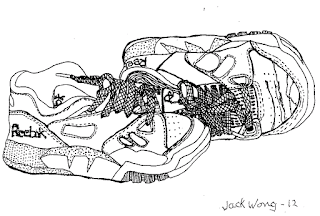I recently read the review of a children’s book titled The Avrah Stories by Abu Abraham. What caught my eye and I guess my heart was the closing line of the review: and he teaches his little readers a lesson that you are never too young to learn: the importance of empathy. I have been trying to get my hands on a copy of the book but with no success till now. What truly grabbled me was the word ’empathy’ one that is sadly missing from the lexicon of too many of us, young and not so young.
Of all the definitions of the word EMPATHY the one I like best is this one: to ability to step into the shoes of another person, aiming to understand their feelings and perspectives, and to use that understanding to guide our actions, not to be confused with pity or kindness. Empathy has to be nurtured throughout life, more so when we find ourselves in the face of adversity. But the seeds have to be sown in tender minds something that sadly does not happen anymore.
When I look back at my own life I am surprised at the fact that I cannot remember my first lesson in empathy though I remember feeling empathy when I was tiny, maybe 3 or so. Even today I feel tugs at my heart when I remember hazily the man and his dancing bear that my nana had called to entertain me. It was not the bear and his antics that I saw, but the thin man in a threadbare shirt in the freezing cold. I had surreptitiously walked into his shoes. The show ended when my tears compelled my grandparents to find the man and give him an coat. I on the other hand carried that ‘ability’ and fine tuned it over the years.
So where do these lessons come from and why have we lost them?
It has now been scientifically proved that we are not only homo sapiens but also homo empaticus who have the ability for cooperation and mutual aid. Roman Krznaric feels that empathy can be cultivated throughout our lives and use it to transform society, something I totally agree with. Highly empathetic people have habits that they cultivate like: curiosity about strangers, challenging prejudices and discovering commonalities, trying on someone else’s life, listening hard and opening up, developing imagination and inspiring social change. I am humbled to see that these are pretty much habits I follow.
But to get to this point in life I have to thank many masters: my parents who led by example, the stories I heard at their knees, the innumerable amount of books I read and still read, the true life inspiring accounts I was told, the movies that made me cry, the undying belief that one could learn till one’s last breath and from any one no matter how humble, the gentle and correct admonishing by elders and teachers and so much more. From the look of it these are simple pursuits and occurrences and should be part of any child’s life.
Sadly that is not the case. Today children have parents who do not have time to tell stories, the box does that! Books mean school books and thus boring and a chore. Adults do not seem to care. Movies are violent and devoid of meaning, songs have no poetry, moral studies is passé and off the school curriculum and so on. There is no one to hold your hand when you stumble, no words to assuage your hurt, no one to set you back on course. You are at the mercy of a world where screens tell stories and search engines are your mentors. And this comes at a huge price one being abdicating your right to imagine and hence your curiosity.
The palette on offer is limited, the people that can help non existent, lessons to be learnt AWOL, how can empathy be fuelled. At best is lies dormant waiting for the miracle that could rekindle it. In the meantime the world has turned into a terrifying place where aberrations are no more exceptions but the rule.
As I write these words what stares at me is the frightening reality that we have no resources to carry on for long. Shut the door would be what most would suggest, and they do I tell you, some adding in good measure you have done enough! How do I tell them that it is in these times of strife that all the little and bigger faces of my project why family come to the fore and urge me to carry on. I can feel the hopes and see the dreams they dared to hold on to because we were there.
The problem is that most of those I approach I have shut their empathy and lost the key. True it appears at times propelled by a horrifying incident but soon slinks back into some tiny recess of the mind.
I have often asked myself what would get people to get out of their comfort zone and scream. It does not seem the be the rape of baby, the brutalising of a woman, the burning of a human being because you do not like what you think he ate, the killing of another because he read something you did not approve and so on. Each should rekindle our empathy but it does not. That is what we have become. I guess we are not even home sapiens: wise person. No wise person would allow any such aberrations in the society he called his own. And yet we live in one quite comfortably.
I am on a hunt, a hunt for EMPATHY.


